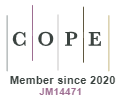Development of a compostable glass made with cassava flour
DOI:
https://doi.org/10.5585/iptec.v9i2.20374Keywords:
Sustainability, Disposable cup, Product developmentAbstract
Currently, we have a high demand for sustainable products. Thus, it is essential to develop new products that meet this demand. This work proposes a disposable cup based on cassava, replacing the traditional disposable cups of fossil base. Researchs with biobased have contributed to the development of biopolymers. However, these cannot maintain the physical-mechanical characteristics of conventional plastics, generating the need for better studies in this area. In this way, an impermeable recipe was elaborated in order to fulfill the product function of the disposable cup. For a better basis for accepting this product, market analysis surveys were conducted through interviews using Google form, as well as risk were made evaluation, analysis of commercial competition, and consumer expectations. Finally, the industrial processes necessary for the manufacture of this product were evaluated. It was concluded that the proposed cassava-based disposable cup serves the function of a product. However, there is a need for product improvement in order to reduce costs, as the proposed cup has a high cost compared to cups made from petroleum.
Downloads
References
ABNT - Associação Brasileira de Normas Técnicas. (2012). ABNT NBR 14865: Copos plásticos descartáveis.
ABRE - Associação Brasileira de Embalagens. (2019). ESTUDO ABRE MACROECONÔMICO DA EMBALAGEM E CADEIA DE CONSUMO. https://www.abre.org.br/dados-do-setor/ano2019/
ABRELPE - Associação Brasileira das Empresas de Limpeza Públicas Estaduais. (2020). PANORAMA DOS RESÍDUOS SÓLIDOS NO BRASIL 2020. https://abrelpe.org.br/panorama-2020/
Associação Brasileira da Indústria do Plástico. (2019). Perfil 2019. ABIPLAST. http://www.abiplast.org.br/wp-content/uploads/2020/09/Perfil_2019_web_abiplast.pdf
Cazarré, M. (2018). Poluição do plástico é desafio para o Dia Mundial do Meio Ambiente. https://agenciabrasil.ebc.com.br/internacional/noticia/2018-06/acabar-com-poluicao-do-plastico-e-tema-do-dia-mundial-do-meio-ambiente
Corrêa, M. E. R. M., & Heemann, A. (2016). PROPOSTA DE SUBSTITUIÇÃO DE COPOS PLÁSTICOS DESCARTÁVEIS EM FÁBRICA DE GRANDE PORTE. In MIX Sustentável (Vol. 2, Issue 2). http://ojs.sites.ufsc.br/index.php/mixsustentavel/article/view/1430
Distribuidora M&B - Embalagens Descartáveis. (2020). Copos Descartaveis - embalagens descartáveis em geral. https://www.mbembalagens.com.br/copos-descartaveis
Fabra, M. J., Pérez-Masiá, R., Talens, P., & Chiralt, A. (2011). Influence of the homogenization conditions and lipid self-association on properties of sodium caseinate based films containing oleic and stearic acids. Food Hydrocolloids, 25(5), 1112–1121. https://doi.org/10.1016/j.foodhyd.2010.10.008
Faria, A. F. de, Pinto, A. C. de A., Ribeiro, M. N., Cardoso, T. S., & Ribeiro, J. P. C. (2008). PROCESSO DE DESENVOLVIMENTO DE NOVOS PRODUTOS: UMA EXPERIÊNCIA DIDÁTICA. Enegep 2008. http://www.abepro.org.br/biblioteca/enegep2008_tn_stp_073_521_12155.pdf
Galanakis, C. M. (2018). Phenols recovered from olive mill wastewater as additives in meat products. In Trends in Food Science and Technology (Vol. 79, pp. 98–105). Elsevier Ltd. https://doi.org/10.1016/j.tifs.2018.07.010
Gil, A. C. (2002). Como elaborar projetos de pesquisa (4th ed.). Atlas.
IPEA - Instituto de Pesquisa Econômica Aplicada. (2019). Visão Geral | Carta de Conjuntura. https://www.ipea.gov.br/cartadeconjuntura/index.php/category/sumario-executivo/
LAGO, S. M. S. (2013). Reverse logistics, legislation and sustainability: a model for collecting residual frying oil as feedstock for biodiesel production. Universidade Estadual do Oeste do Paraná, Toledo.
Lima, L. (2019, July 23). Proposta proíbe sacola, prato, copo e talher de plástico - Notícias - Portal da Câmara dos Deputados. https://www.camara.leg.br/noticias/563216-proposta-proibe-sacola-prato-copo-e-talher-de-plastico
Porter, M. E. (2005). Estrategia Competitiva. In Estratégia competitiva (1st ed.). GEN Atlas.
Rozenfeld, H., Forcellini, F. A., Amaral, dDniel C., Alliprandini, D. H., & Scalice, R. K. (2006). GESTÃO DE DESENVOLVIMENTO DE PRODUTOS: UMA REFERÊNCIA PARA A MELHORIA DO PROCESSO. Saraiva.
Ryan, P. G. (2015). A brief history of marine litter research. In Marine Anthropogenic Litter (pp. 1–25). Springer International Publishing. https://doi.org/10.1007/978-3-319-16510-3_1
Salgado, E. G., Salomon, V. A. P., Mello, C. H. P., Fass, F. D. M., & Xavier, A. F. (2010). MODELOS DE REFERÊNCIA PARA DESENVOLVIMENTO DE PRODUTOS: CLASSIFICAÇÃO, ANÁLISE E SUGESTÕES PARA PESQUISAS FUTURAS. Produção Online, 10(4), 886–911.
Silva, E. L. da, & Menezes, E. M. (2001). Metodologia da pesquisa e elaboração de dissertação.
Souza, A. J. S. (2016). Design como forma de inovação no processo de desenvolvimento de produtos (PDP) e seus conceitos metodológicos. Di Factum.
WWF Brasil. (2018). RELATÓRIO PLANETA VIVO 2018: Uma ambição maior. https://www.wwf.org.br/natureza_brasileira/especiais/relatorio_planeta_vivo_2018/
Yin, R. K. (2001). Estudo de Caso: Planejamento e Método (2nd ed.). Bookman.
Downloads
Published
How to Cite
Issue
Section
License
Copyright (c) 2021 Revista Inovação, Projetos e Tecnologias

This work is licensed under a Creative Commons Attribution-NonCommercial-ShareAlike 4.0 International License.






